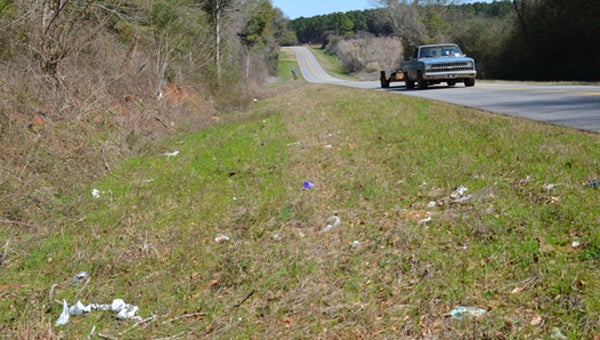Couple battles litter woes
Published 9:16 pm Tuesday, February 25, 2014
Farms and cow pastures are a staple on County Road 3304. Unfortunately, so is litter. Residents Ann and Larry Webb have been fighting an uphill battle to keep the litter off their property since they moved to the area.
“People just dump everything,” said Ann. “It’s awful. We’ve got a beer can out in the fields with our cows.”
“And we don’t even drink beer,” added Larry.
County officials did not have a solution for the ongoing problem.
“The best answer is nobody throws garbage out the window. It ultimately comes down to personal responsibility,” said County Administrator Harry Sanders. “We shouldn’t just expect and accept people throwing things out their window.”
Sanders considered the multitude of litter that lines some of the county’s roads an embarrassment, but it wasn’t the worst he’d seen in the state.
“Now how do you stop it? If it were an easy question, we would have already stopped and answered it,” Sanders added.
The only other solution Sanders had found was for it to become a community effort. He and the Brundidge Rotary have adopted a portion of Highway 231 and a road that leads into Brundidge through the state’s Adopt a Mile program. Members of the organization volunteer to pick up litter in the area.
The Webbs have unofficially adopted portions of County Road 3304, but the littering never ceases.
“We try to pick up as much as we can,” Ann said.
The county does not have a department or a crew devoted to cleaning up the litter.
Sanders said there was no room in the budget to add one.
“Our first concern is to make sure it’s safe,” Sanders said. “When it comes down to keeping roads maintained and safe or keeping the trash picked up, we certainly have to choose safe roads.”
Ann Webb asked thecounty officials about the possibility of using inmates in the county jail for trash pick-up.
Robin Sullivan, commissioner, said after careful consideration, the commission decided the costs and public safety kept inmates from being a viable option.
“We worked on that for a couple of years,” Sullivan said.
“The risk is greater than the benefit, from our standpoint. And they have to be supervised and we don’t have the personnel for that.”





